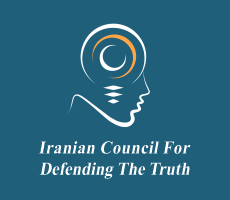In general and to simplify for a wider audience, I tend to think of the Middle East as a chess board that plays out with Saudi Arabia and Iran as rivals. Of course, the reality is far more complex given a range of different internal and external actors who impact the geopolitical calculus of the region. Unfortunately, sections of the region are also marked by fissiparous civil wars, notably Syria, Iraq, Yemen, and Libya, which, heartbreakingly, remain ongoing. On the other hand, some areas of the Middle East are doing very well economically with significant improvements to living standards and major technological updates. Finally, the Abraham Accords have also formalized the improved way that Israel is now viewed in the region by several countries.
I think the current domestic challenges basically have had impacts on Biden’s foreign policy; a lot is in flux right now in the United States, which has taken the attention of the president. Many Republicans are concerned that the Biden administration is not paying enough attention to China, Russia, Turkey, and North Korea on the international stage such that the norms of the post-1945 world order are beginning to unravel. Of course, Biden inherited many of these issues from his predecessors, but GOP concerns are that Biden lacks the toughness of Trump on the world stage, and that authoritarian powers are more likely to annex territories and undercut international norms. Many Democrats have been supportive of the Biden administration’s moves on the world stage, notable in re-entering the Paris Climate Accords and updating the New START treaty among others.
My sense is that a revived JCPOA will be a centerpiece of the Biden administration’s Middle East policy. He has to be careful to cultivate support amongst Republicans since the JCPOA will likely not last without changes–notably the level of uranium enrichment and the sunset clause led many Republicans to oppose the deal under the Obama administration. But, with control of the White House and both chambers of Congress until January 2023, President Biden has significant latitude at home to cultivate a new deal. Nevertheless, there are still a lot of challenges to a new deal on various sides of the Vienna talks.
Trump is not given enough credit for the Abraham Accords, which now extends to four countries: UAE, Bahrain, Sudan, and Morocco, with Oman also interested in furthering relations. My view is that the Biden administration will seek to build on these changes. This is not to give Israel a “free pass” but to argue that normalized relations are long overdue. With his announcement to continue the Trump era desire to remove troops from Afghanistan, Biden will likely look to be less involved in the Middle East. However, I hope that the US will engage with other great powers and regional powers in the region and work towards ending some of the longstanding civil wars–this is easy to say, but difficult to accomplish.


I think the real question is after a revived JCPOA, and a 2024 Trump, what will happen? Does we have a historical circle?